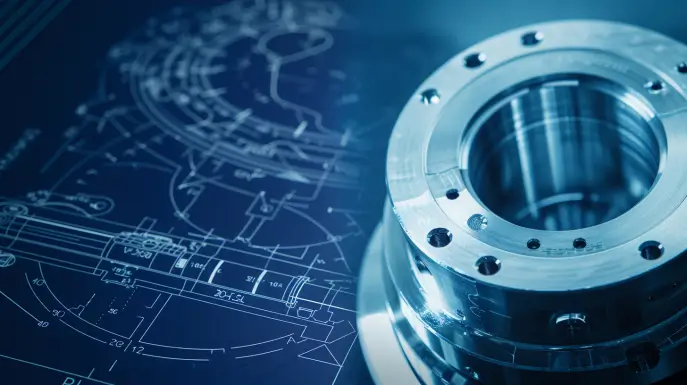CNC machining Invar
- Exceptional Corrosion and Heat Resistance: Ideal for aerospace and chemical industries.
- Precision:0.001mm
- Fast Turnaround Times: Receive your parts in just 1-7 days
- Certified Quality: ISO9001:2015 and IATF16949 certified processes for top-quality results.
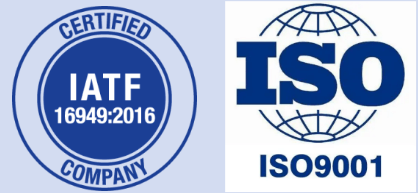
Ensuring 0.001mm Precision in CNC Invar Machining
At Modo Rapid, we achieve high precision in our machining processes, with tolerances up to ±0.001 mm.
Our commitment to tight tolerances ensures your components meet the strictest standards, crucial for your critical applications.
Invar Material Selection
Why Choose Invar for Your Application?
Invar is known for its minimal thermal expansion, making it ideal for precision instruments and high-precision components. Its stability across a wide range of temperatures ensures consistent performance.
What Invar Grades Can I Choose?
- Invar 36: Low thermal expansion, perfect for aerospace and precision instruments.
- Super Invar: Even lower thermal expansion, used in optical and measurement instruments.
- Invar 42: Balanced properties for various industrial applications.
- Invar 48: Higher nickel content for specialized applications requiring unique properties.
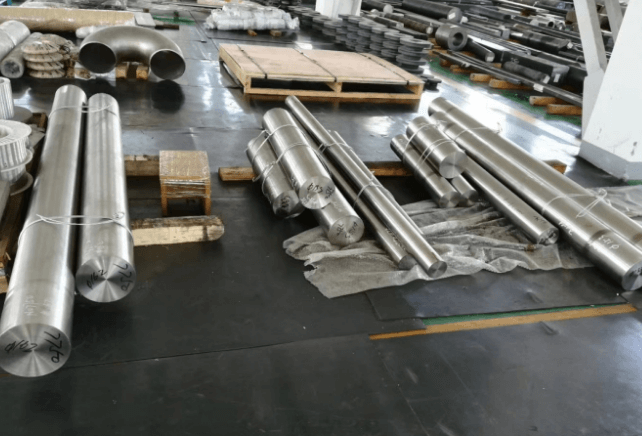
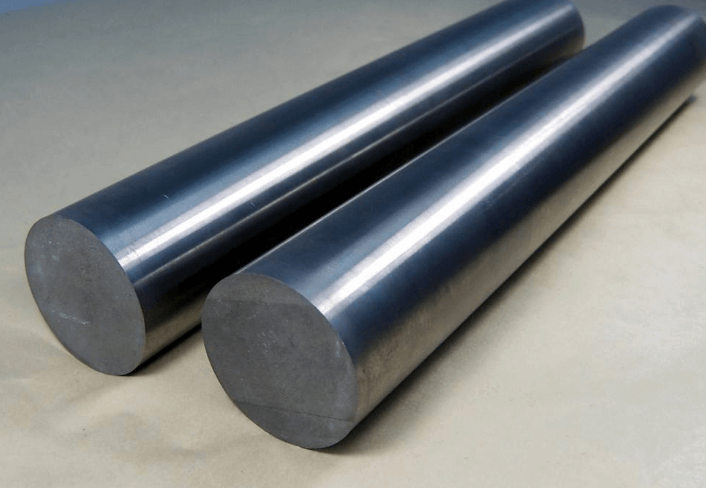
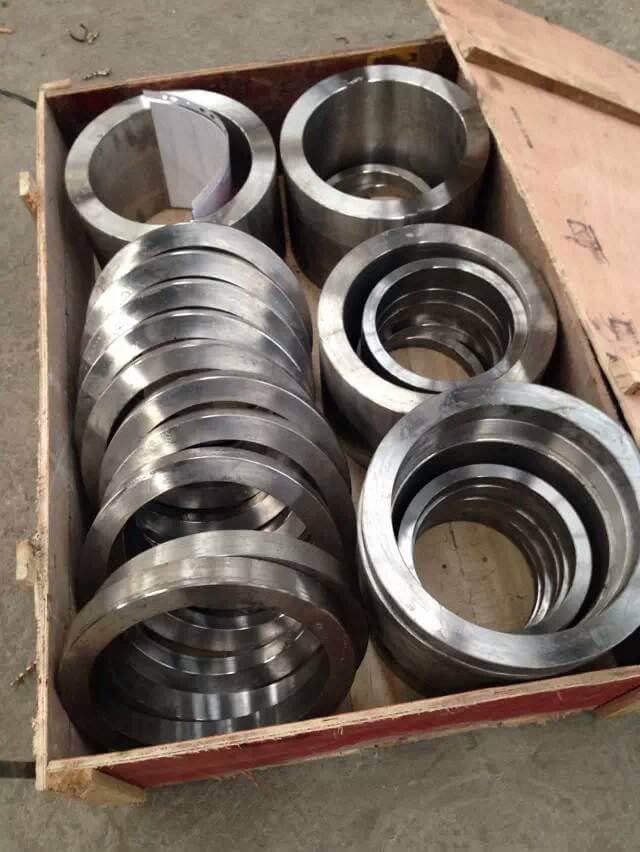
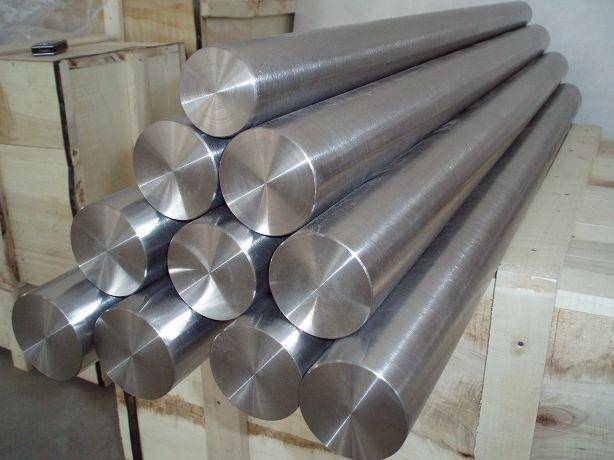
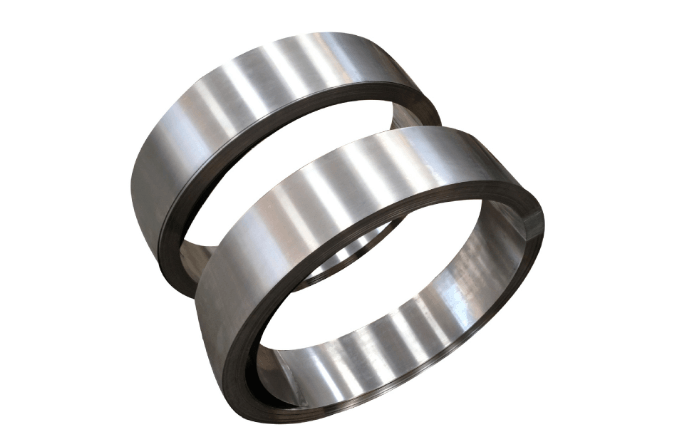
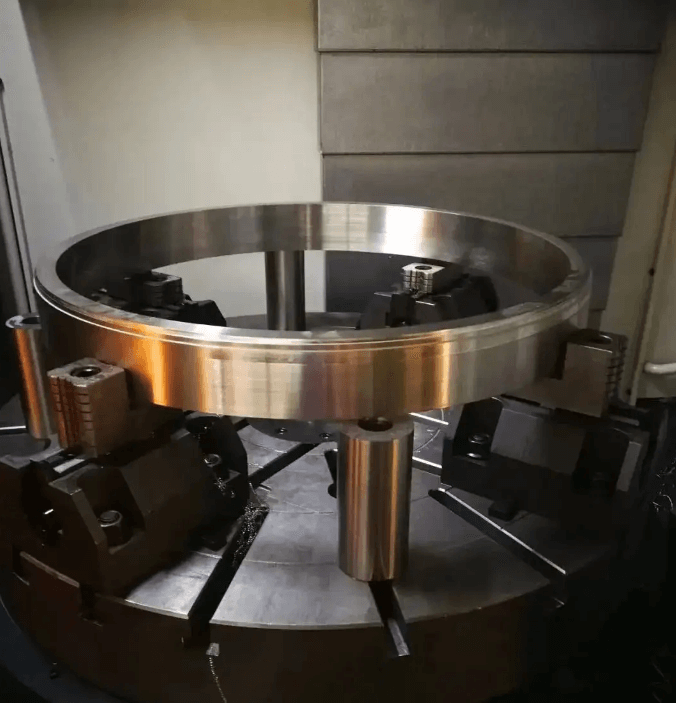
How Modo Rapid Ensures Your Inconel Parts Remain Deformation-Free
Invar is a challenging material to machine. At Modo Rapid, we prioritize your needs and ensure your Invar parts maintain their integrity throughout the CNC machining process.
Heat Buildup
Invar generates significant heat during machining, leading to increased tool wear and heat at the contact point. We reduce the CNC machine RPM and use a larger chipload to manage this. Additionally, our high-pressure coolant systems ease the strain on cutting tools, ensuring high-quality Invar parts for you.
Workholding
Invar’s toughness requires a firm grip during CNC machining. We maintain a tight hold and ensure constant tool motion without interruptions. This prevents deformation and guarantees that your parts are machined to perfection.
At Modo Rapid, we understand the challenges of machining Invar and employ expert techniques to ensure your parts remain flawless and deformation-free.
What are the maximum part sizes and complex geometries you can handle?
- Part Sizes: We can machine parts with maximum dimensions of 1500mm x 800mm x 600mm, meeting the needs of most industrial applications.
- Complex Geometries: Our 5-axis and 4-axis CNC machining centers can precisely machine complex geometries, including internal channels, intricate surfaces, and high-precision apertures. Our equipment can manage fine features and tight tolerances, ensuring your design intentions are perfectly realized.
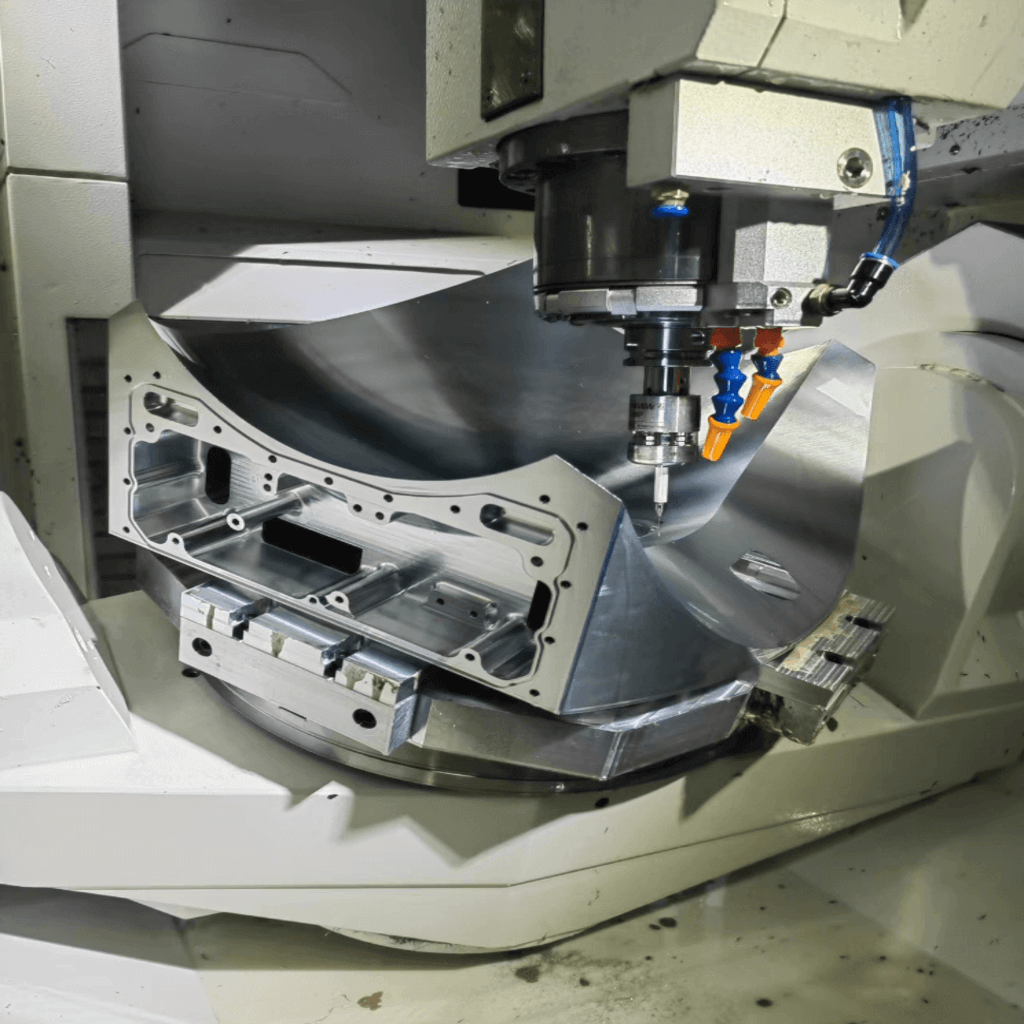
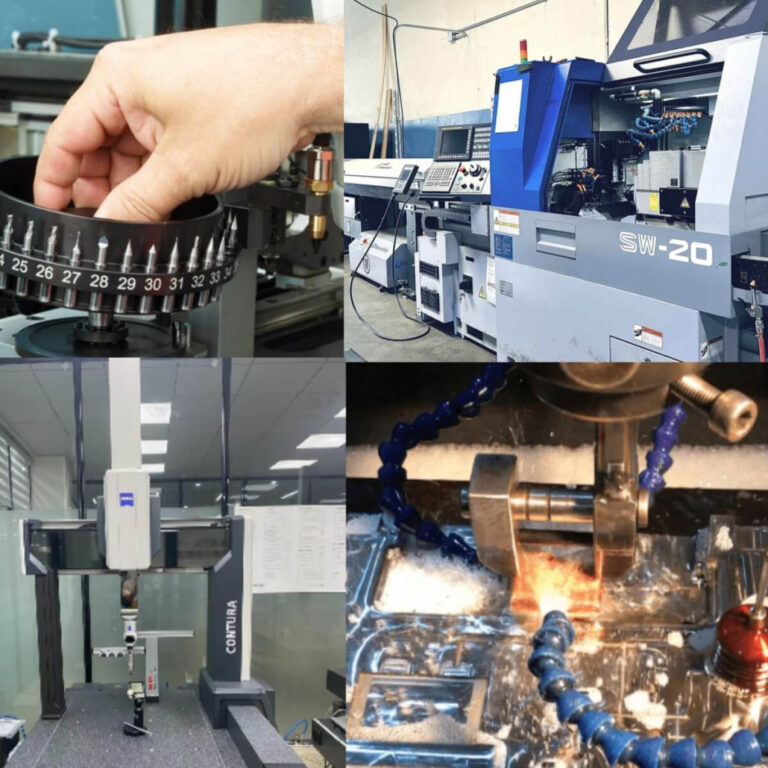
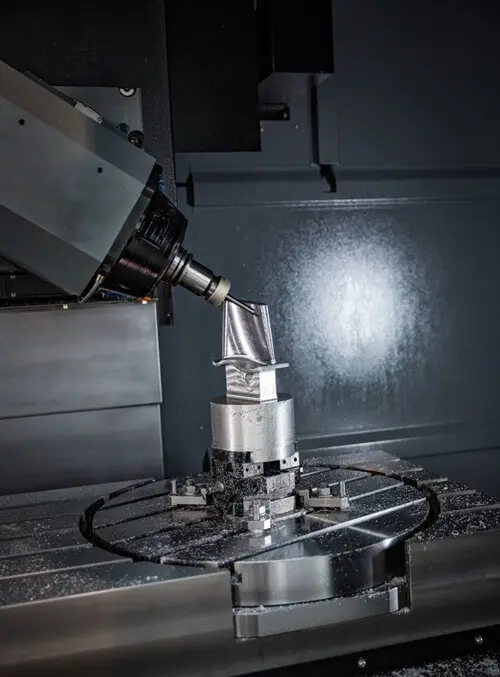
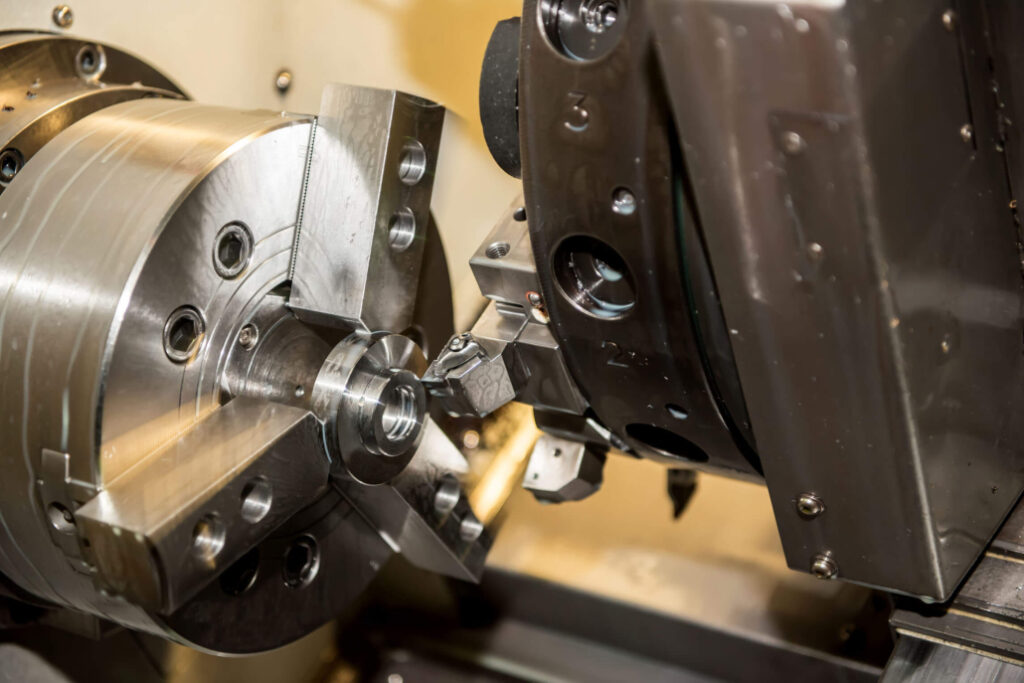
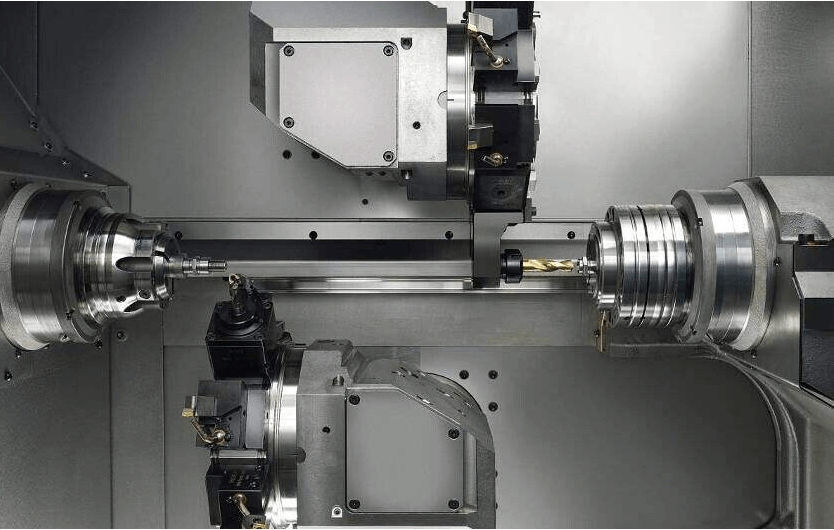
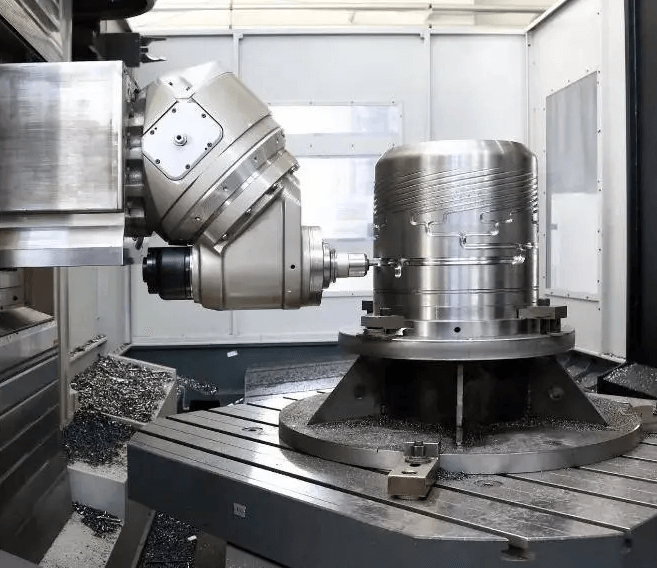
What advanced CNC equipment do you have for machining Invar alloys?
- 5-Axis CNC Machining Centers: Capable of producing complex geometries and intricate designs, ensuring high accuracy and smooth finishes on Invar components.
- High-Speed CNC Mills: Equipped with robust spindles and high feed rates, ideal for efficiently machining Invar while maintaining tight tolerances.
- Multi-Tasking CNC Lathes: These machines combine milling and turning capabilities, allowing for versatile and efficient production of Invar parts in a single setup.
- Precision CNC Grinders: Essential for achieving the fine surface finishes and exact dimensions required for high-performance Invar components.
- EDM (Electrical Discharge Machining): Utilized for cutting intricate shapes and hard-to-machine areas, providing high precision without inducing stress in the Invar material.
- Mill-turn machine: Combines turning and milling functions in one, completing complex multi-axis machining on a single setup. It improves accuracy and efficiency, ideal for high-precision parts. For Invar alloy parts, its high rigidity and multi-axis capabilities reduce machining time and ensure quality. Using efficient tools and optimized parameters further enhances production speed and reliability.
Invar Parts Finishes
Surface Finish Options
- Smoothing
- Polishing
- Bead blasting
- Brushing
- Painting
- Chroming
- Metallizing
- PVD coating
- Powder coating
- Electrophoresis
Impact of Surface Preparation on Invar Parts
Surface preparation significantly influences both the performance and appearance of Invar parts:
- Enhanced Durability: Proper surface preparation can increase the lifespan of Invar parts by improving resistance to corrosion and wear.
- Improved Functionality: A well-prepared surface can reduce friction and improve the efficiency of mechanical components.
- Aesthetic Appeal: High-quality finishes enhance the visual appeal of Invar parts, making them suitable for both functional and decorative applications.
- Adhesion of Coatings: Proper preparation ensures better adhesion of subsequent coatings or treatments, ensuring consistent and long-lasting finishes.
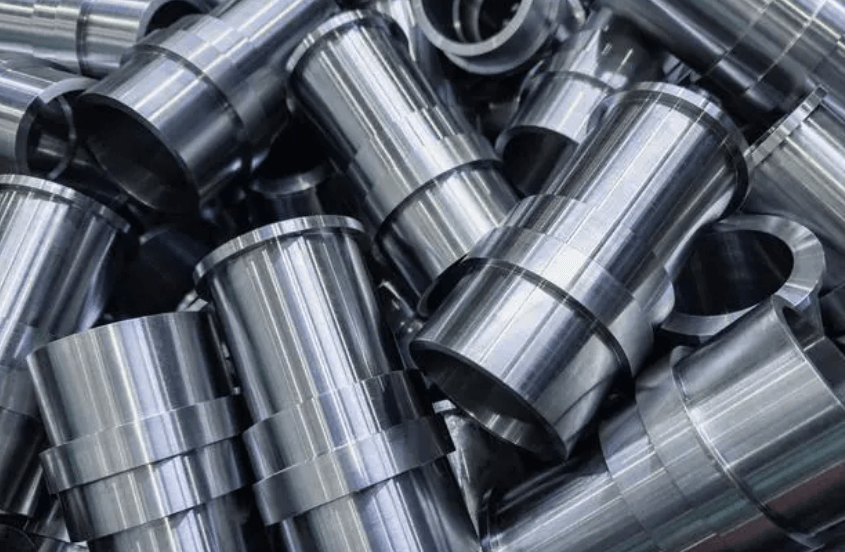
Inconel Part Surface Finish
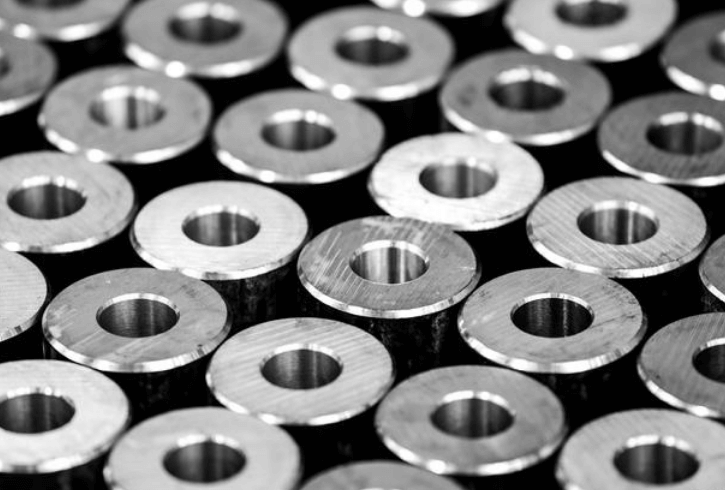
Cost Calculation for Custom Invar Alloy Parts
The cost of machining Invar parts at Modo Rapid is determined by several key factors:
- Material Costs: The price of Invar, which is higher compared to other metals, is a significant factor.
- Complexity of Design: Parts with intricate designs and tight tolerances require more time and specialized tools, increasing costs.
- Machining Time: Longer machining times due to Invar’s hardness and the need for precise operations.
- Surface Finishes: Additional processes such as anodizing, polishing, or coating add to the total cost.
- Tool Wear: Invar’s toughness leads to faster tool wear, contributing to higher tool replacement costs.
Volume Discounts and Minimum Order Quantity
At Modo Rapid, we offer volume discounts to accommodate larger production runs. The discounts increase with the order size, making it more cost-effective for bulk purchases. We understand the diverse needs of our clients, so we have set a flexible minimum order quantity to cater to both small and large projects.
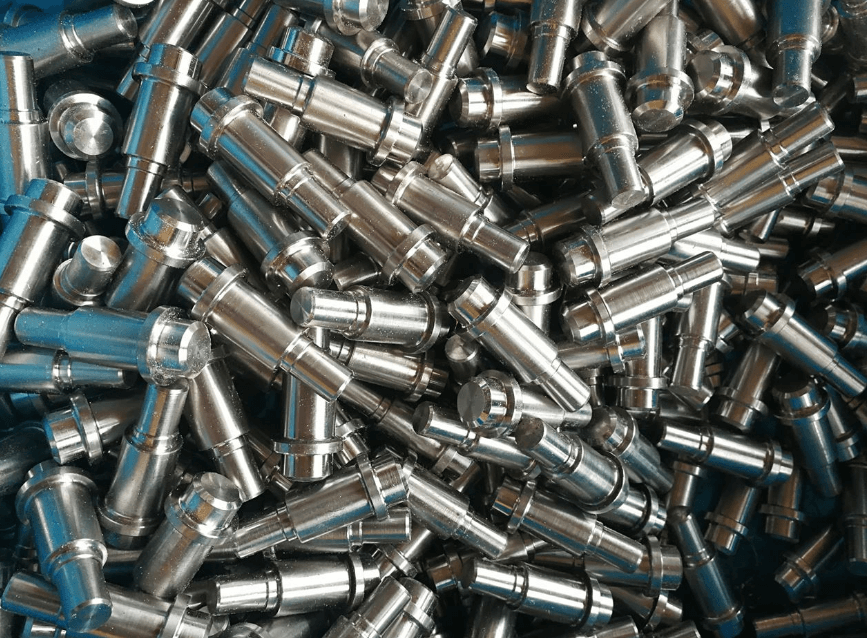
Example: Cost Calculation
Let’s assume we have an Invar alloy part with the following specifications:
- Dimensions: 100mm x 50mm x 10mm
- Complexity: Medium complexity geometry
- Surface Finish: Anodized
- Quantity: 50 pieces
Material Cost
- Price of Invar alloy: $100/kg
- Weight per part: 0.5 kg
- Total material cost: 50 pieces x 0.5 kg x $100/kg = $2,500
Machining Cost
- Machining time for medium complexity parts: 3 hours/part
- Machining rate: $120/hour
- Total machining cost: 50 pieces x 3 hours/piece x $120/hour = $18,000
Surface Finish Cost
- Anodizing cost: $25/piece
- Total surface finish cost: 50 pieces x $25/piece = $1,250
Tool and Equipment Wear
- Invar alloy causes significant tool wear, requiring frequent replacement
- Estimated tool and equipment wear cost: $750
Other Costs
- Quality control and inspection fees: $600
- Packaging and shipping fees: $300
Total cost = Material cost + Machining cost + Surface finish cost + Tool and equipment wear + Other costs
Total cost = $2,500 + $18,000 + $1,250 + $750 + $900 = $23,400
Cost per part = Total cost / Quantity
Cost per part = $23,400 / 50 pieces = $468/piece
This example provides a rough estimate of the cost. Actual costs will vary based on specific designs, process requirements, and quantities. To receive an accurate quote, please provide detailed mechanical drawings and technical specifications. We will then provide a customized quote based on your needs.
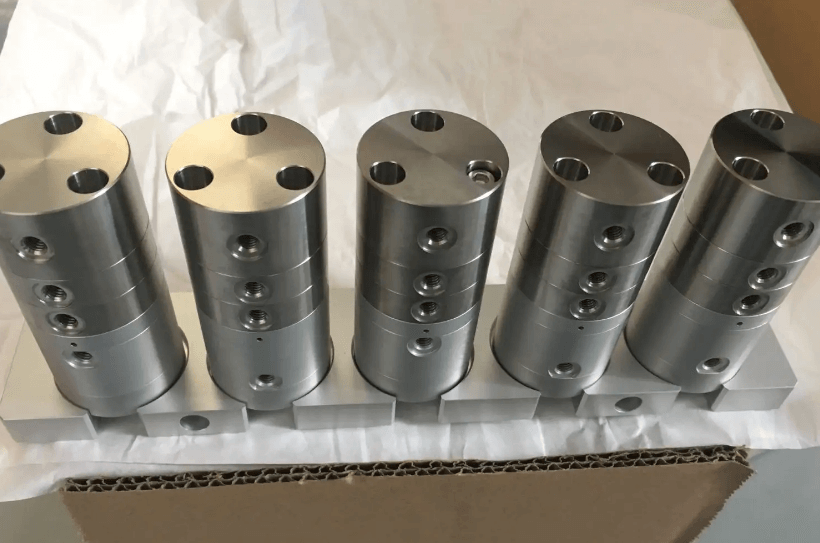
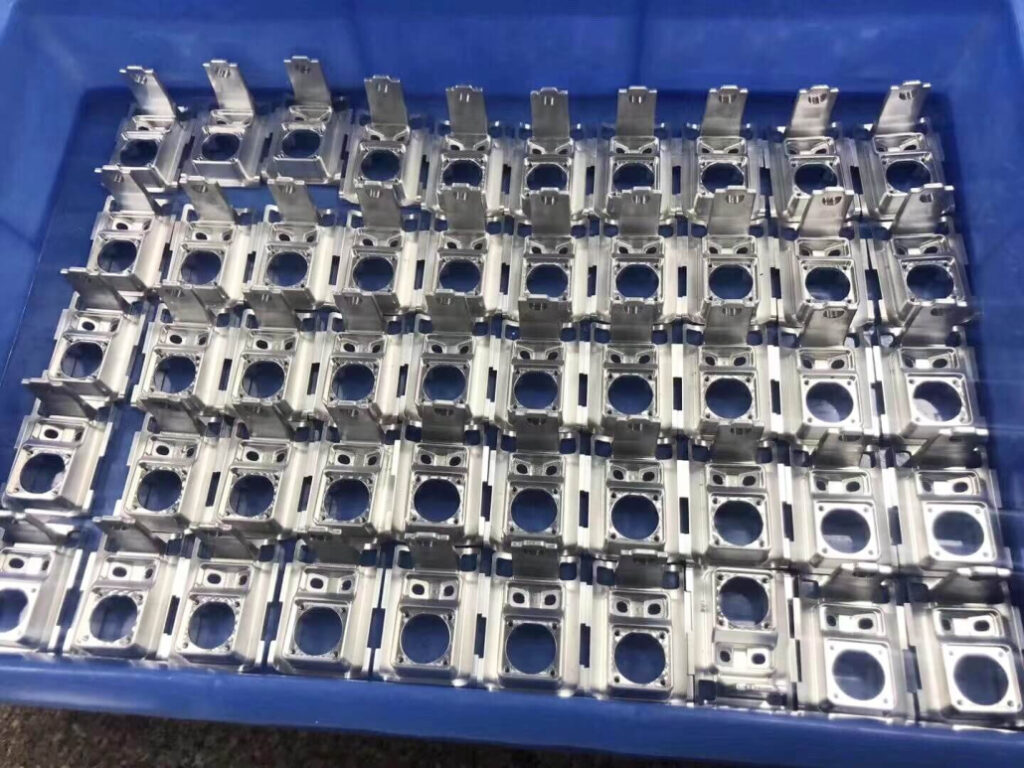
Production Lead Time and Delivery Time
Typical Lead Time from Order Placement to Delivery
At Modo Rapid, our standard lead time from order placement to delivery typically ranges from 1 to 2 weeks. This timeline includes:
- Order Confirmation and Planning: 1-2 days
- Procurement of Materials: 2-3 days
- Machining and Production: 5-7 days
- Quality Control and Inspection: 1-2 days
- Packaging and Shipping: 1-2 days
How Do We Deal With Your Expedited Orders?
Yes, we can shorten the production time for expedited orders. If you require faster delivery, please inform us at the time of order placement. Expedited orders are subject to an additional fee and depend on the current production schedule and the complexity of the parts. By prioritizing your order, we can often reduce the lead time to 1-7 days.
Our team is committed to meeting your deadlines and ensuring that you receive your parts on time, even for urgent projects. Please contact us directly to discuss your specific requirements and expedited options.
How Do We Ensure Consistency and Quality for Each Batch of Parts?
Quality Control Measures:
Advanced Inspection Tools: Utilization of CMMs (Coordinate Measuring Machines), laser scanners, and precision gauges to measure critical dimensions and geometries.
In-Process Monitoring: Continuous monitoring during machining processes to detect and correct deviations in real-time.
Material Verification: Comprehensive material testing, including chemical composition and mechanical property analysis, to ensure conformity with specifications.
Surface Finish Analysis: Employing profilometers and other surface finish measurement tools to guarantee that all parts meet required surface quality standards.
Environmental Controls: Maintaining a controlled environment in production areas to minimize the impact of temperature and humidity variations on machining accuracy.
Ensuring Consistency and Quality for Each Batch:
Standard Operating Procedures (SOPs): Strict adherence to standardized processes for each operation to ensure uniformity across all production stages.
First Article Inspection (FAI): Conducting thorough inspections on the first piece of each batch to verify that it meets all specified requirements before proceeding with full-scale production.
Statistical Process Control (SPC): Applying SPC techniques to monitor and control the manufacturing process, ensuring that variations are kept within acceptable limits.
Lot Traceability: Implementing comprehensive traceability systems to track materials and processes for each batch, allowing for easy identification and resolution of any quality issues.
Final Inspection and Testing: Performing rigorous final inspections and functional tests on all parts before shipment to confirm that they meet client specifications and quality standards.
Our commitment to stringent quality control measures ensures that you receive consistent, high-quality parts in every batch, supporting your projects’ success and reliability.
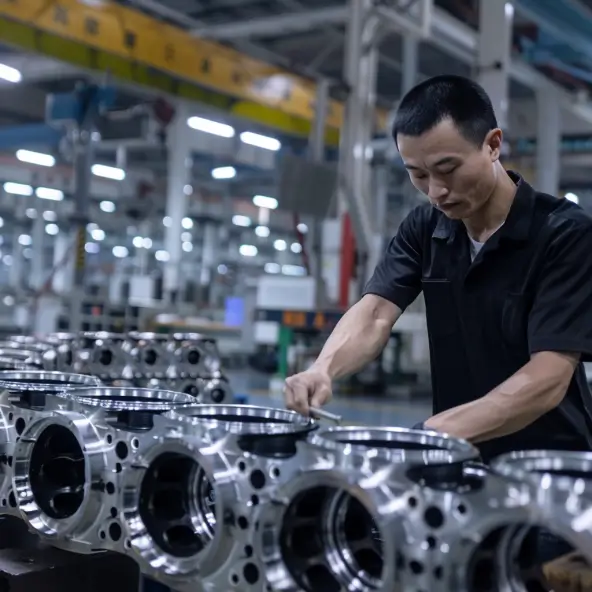
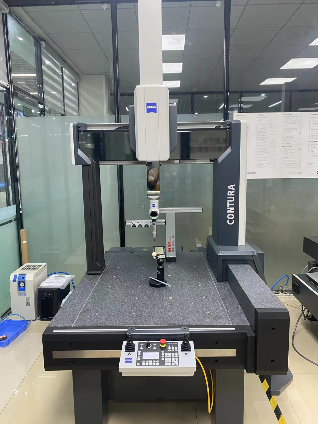
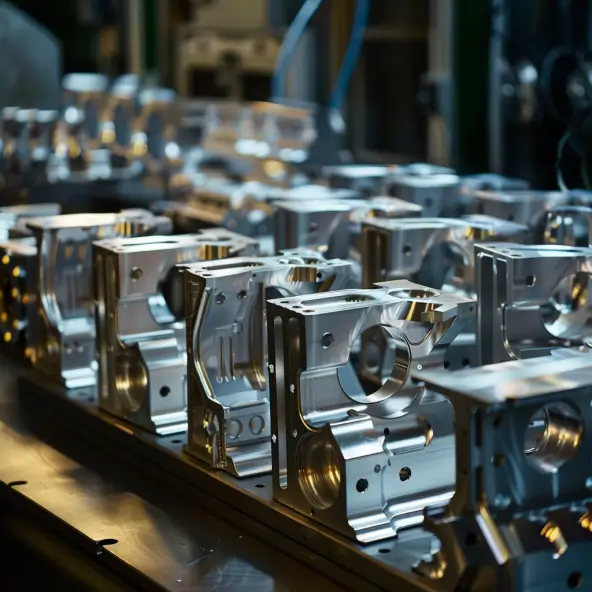
Why Modo Rapid is Your Trusted Partner for Inconel Projects
At Modo Rapid, we combine extensive experience, advanced technology, and a skilled team to deliver high-quality Invar parts.
Rich Experience: Over a decade in Invar machining across aerospace, chemical, and energy industries.
Advanced CNC Technology: Cutting-edge equipment for precision and efficiency in complex geometries.
Skilled Team: Expert engineers and technicians dedicated to quality and overcoming Invar’s unique challenges.
Stringent Quality Control: Rigorous measures at every stage ensure consistent, reliable parts.
Customer-Centric Approach: Tailored solutions with open communication and collaboration.
Innovative Solutions: Continuous investment in R&D for advanced, competitive solutions.
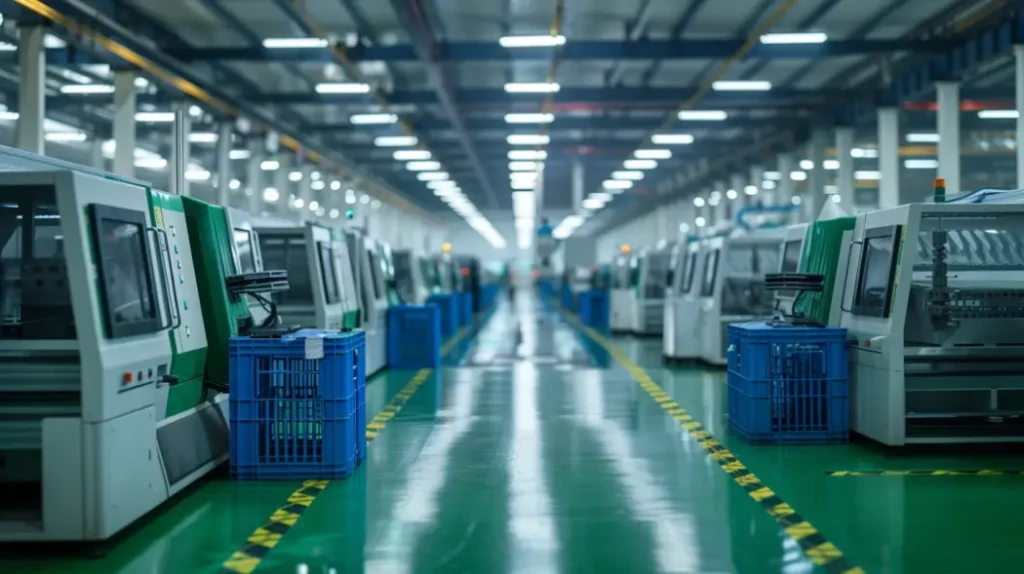
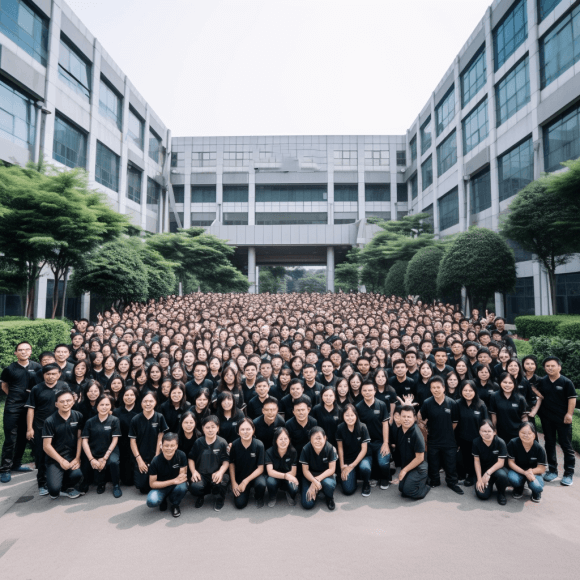
Client Feedback & Reviews
Ensuring Your Compliance with Environmental and Industry Standards
At Modo Rapid, we prioritize your need for environmentally responsible and industry-compliant manufacturing processes.
Meeting Your Environmental and Industry Standards: Our operations are designed to align with stringent environmental and industry regulations, ensuring that your projects not only meet but exceed these standards.
Certifications That Matter to You:
- ISO 9001: Guaranteeing consistent quality and continuous improvement in every product you receive.
- ISO 14001: Demonstrating our commitment to environmental management, so you can trust our sustainable practices.
- RoHS Compliance: Ensuring our materials are free from hazardous substances for your safety and peace of mind.
- REACH Compliance: Managing chemicals responsibly in our products to meet your regulatory requirements.
- IATF 16949: Meeting the rigorous quality management standards required for the automotive industry, ensuring the highest quality for your automotive projects.
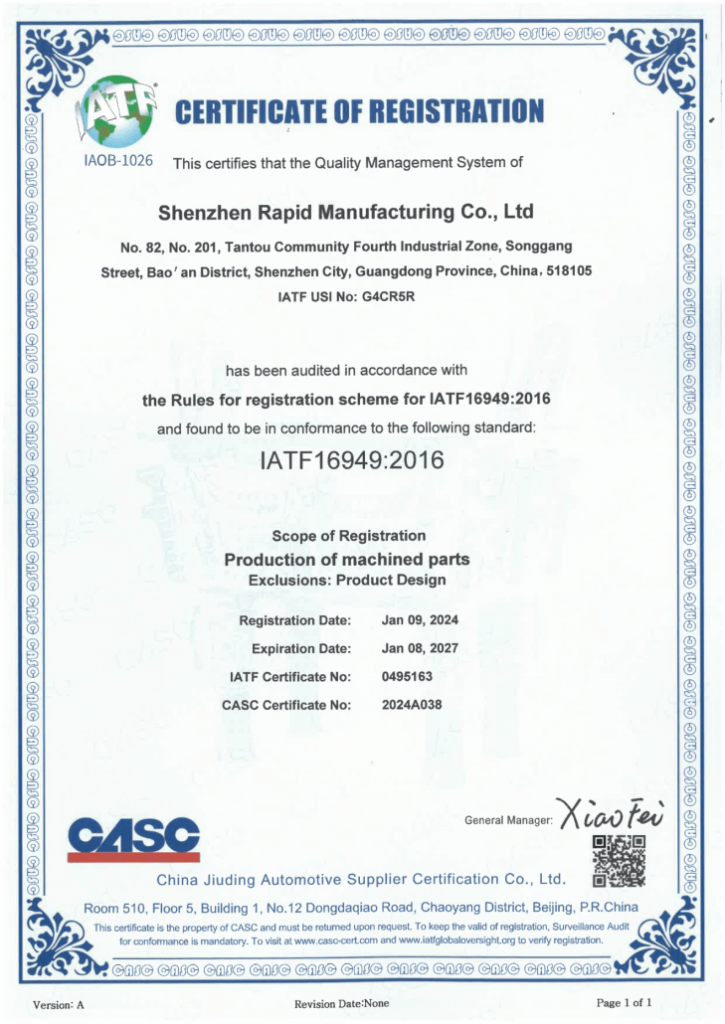

FAQ
Yes, Invar can be quite challenging to machine. Its low thermal expansion rate and high nickel content make it tough and abrasive, which leads to rapid tool wear. Specialized cutting tools and techniques are required to achieve precise results.
Invar 36 has relatively poor machinability compared to many other metals. The high nickel content results in significant heat generation during cutting, which can quickly wear out tools. Using carbide tools and controlling the machining parameters carefully can help manage these difficulties.
Inconel and Invar are both nickel-based alloys but serve different purposes:
- Inconel is known for its high-temperature strength and resistance to oxidation and corrosion, making it ideal for high-stress, high-temperature environments like gas turbines and jet engines.
- Invar is notable for its extremely low thermal expansion, which makes it suitable for applications requiring dimensional stability across temperature changes, such as precision instruments and clocks.
The maximum service temperature for Invar is typically around 230°C (446°F). Beyond this temperature, its low expansion properties begin to degrade.
- Machinability: Invar is tough to machine, leading to higher tool wear.
- Cost: Invar is relatively expensive due to its high nickel content.
- Magnetism: Invar is magnetic, which can be a disadvantage in certain applications.
- Thermal Conductivity: It has low thermal conductivity compared to other metals.
Invar has similar strength to many types of steel, but its main advantage is its low thermal expansion rather than its strength. Depending on the specific alloy of steel, Invar may be slightly weaker or stronger.
Super Invar has an even lower coefficient of thermal expansion than Invar 36 due to its higher nickel and cobalt content. This makes Super Invar more suitable for extremely precise applications, like optical and measurement instruments, where minimal thermal expansion is crucial.
Yes, brass has a higher coefficient of thermal expansion than Invar. This means brass will expand and contract more with temperature changes compared to Invar.
Invar is quite expensive compared to many other metals due to its high nickel content and specialized properties. The exact cost can vary, but it is generally higher than standard steels and aluminum alloys.
Invar is special because of its exceptionally low coefficient of thermal expansion. This property makes it ideal for applications where maintaining precise dimensions despite temperature changes is critical.
Invar does expand when heated, but its rate of expansion is significantly lower than most other metals. This minimal expansion is what makes it valuable in precision applications.
Invar 36 is a specific formulation of Invar containing 36% nickel, which provides its characteristic low thermal expansion. Invar as a general term can refer to various alloys with similar properties, but Invar 36 is the most common and widely used version.
Invar is ferromagnetic, which means it can be magnetized and attracted by magnets. Its magnetic properties are a consideration in applications where magnetism could interfere with performance.
Invar does not expand significantly because of the balance between its iron and nickel content, which creates a structure that resists changes in length as temperature changes. This unique composition stabilizes its dimensions.
There is no direct equivalent to Invar steel in terms of thermal expansion properties. However, other low-expansion alloys, such as Super Invar and various grades of Kovar, offer similar low-expansion characteristics for specific applications.
Yes, Invar can be recycled. Its high nickel content makes it valuable for recycling, and it can be melted down and reformed into new products without significant loss of its properties.
Invar is used in making precision instruments, such as clocks, scientific instruments, and telescopes, because of its low thermal expansion. It ensures that components stay dimensionally stable across varying temperatures.
Invar is used in various applications requiring high dimensional stability, including:
- Precision instruments
- Clock pendulums
- Surveying instruments
- Aerospace components
- Photographic equipment
- Optical devices
The cost of Invar can vary depending on market conditions, but it generally ranges from $20 to $40 per pound. It is more expensive than standard steels and aluminum due to its high nickel content and specialized properties.
Invar is not typically found in everyday objects but is used in specialized industries. You can find it in scientific laboratories, aerospace companies, and manufacturing facilities that produce precision instruments and components.
Invar expands very slightly on heating, much less than most other metals. This minimal expansion is why it is prized for precision applications.
Invar tape shares the same disadvantages as Invar in general, such as:
- Difficulty in machining or cutting
- Higher cost compared to other materials
- Magnetic properties, which might not be suitable for all applications
Invar is not classified as a superalloy. Superalloys are designed to maintain strength and integrity at high temperatures and under mechanical stress, like those found in turbine engines. Invar is designed for minimal thermal expansion.
Custom Invar Parts for Your Project!
Experience tailored excellence with our high-precision Invar parts. We manufacture to your exact specifications, ensuring top-quality results and cost efficiency.
At Modo Rapid, we prioritize your project’s success, offering unmatched precision and competitive prices. Choose us for seamless, customized Invar part solutions. Send us your specifications and let us help you achieve your goals.
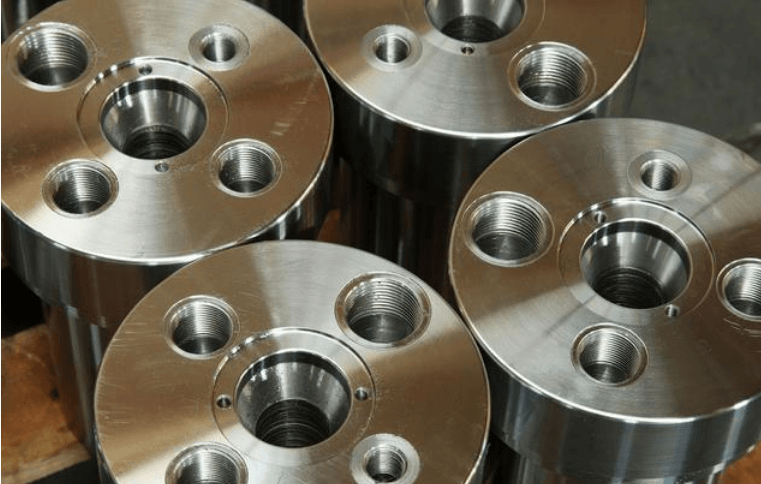
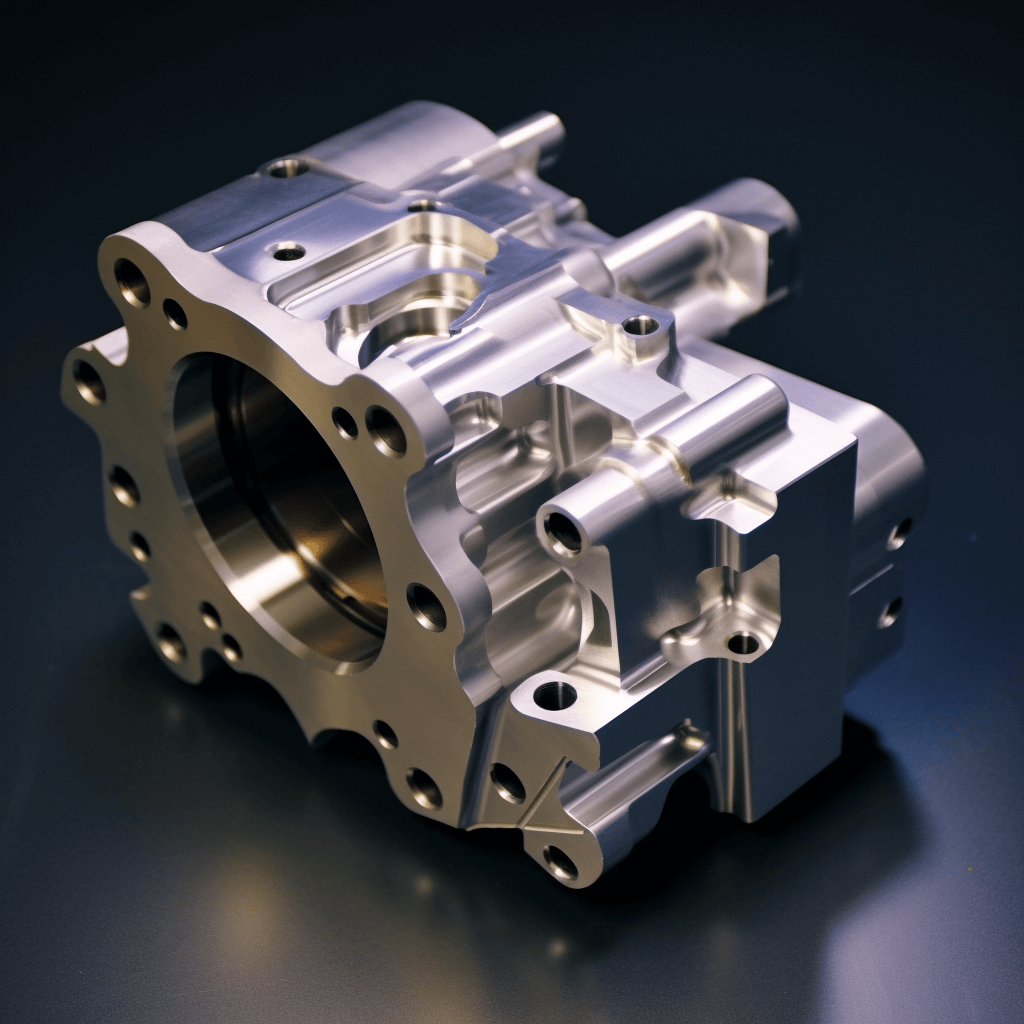

Get a quote for custom invar parts
